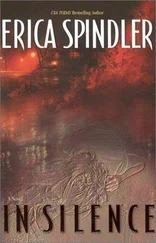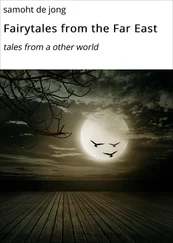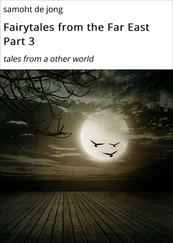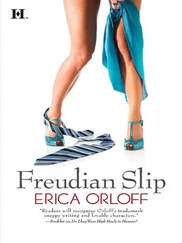Children of tender years were invariably exterminated since by reason of their youth they were unable to work… Very frequently women would hide their children under their clothes, but of course when we found them we would send the children in to be exterminated. We were required to carry out these exterminations in secrecy, but of course the foul and nauseating stench from the continuous burning of bodies permeated the entire area and all of the people living in the surrounding communities knew that exterminations were going on at Auschwitz.
– Affidavit of S.S.-Oberstürmführer
Rudolph Hess, April 5, 1946, Nürnberg
Europe is dusty plush,
first-class carriages
with first-class dust.
And the conductor
resembles a pink
marzipan pig
and goose steps
down the corridor.
fräulein!
He says it with four umlauts
and his red patent-leather
chest strap zings the air
like a snapped rubber band.
And his cap peaks and peaks,
a papal crown
reaching heavenward to claim
an absolute authority,
the divine right
of Bundesbahn conductors.
fräulein!
E pericoloso sporgersi.
Nicht hinauslehnen.
II est dangereux…
the wheels repeat.
But I am not so dumb.
I know where the tracks end
and the train rolls on
into silence.
I know the station
won’t be marked.
My hair’s as Aryan
as anything.
My name is heather.
My passport, eyes
bluer than Bavarian skies.
But he can see
the Star of David
in my navel.
Bump. Grind.
I wear it for
the last striptease.
fräulein!
Someone nudges me awake.
My coward of a hand
almost salutes
this bristling little
uniform of a man.
Schönes Wetter heute,
he is saying
with a nod
toward the blurry farms
beyond the window.
Crisply he notches
my ticket, then
his dumpling face smiles down
in sunlight which is
suddenly benign
as chicken soup.
Before I lived in Heidelberg, I was not particularly self-conscious about being Jewish. Oh I have certain memories: my grandmother lathering my hands between hers and saying she was washing away “the Germans” (her punning synonym for germs). My sister Randy initiating a game called “Running Away from the Germans” in which we put on our warmest clothes, bundled our baby sister Chloe in the doll carriage, made applesauce sandwiches, and sat eating them in the fragrant depths of the linen closet, hoping our supplies would last until the war was over and the Allies came. There is also a stray memory of my Episcopalian best friend Gillian Battcock (age five) saying she couldn’t take a bath with me because I was Jewish and Jews “always make wee-wee in the bath water.” But in general, I had a fairly ecumenical childhood. My parents’ friends came in all colors, religions, and races, and so did mine. I must have learned the phrase “Family of Man” before my training pants were dry. Though Yiddish was sometimes spoken at home, it seemed to be used only as a sort of code language to hide things from the maid. Sometimes it was spoken to deceive the children, but we, with our excellent childhood radar, always sensed the content even if we missed the words. The result was that we learned almost no Yiddish. I had to read Goodbye, Columbus to learn the word shtarke and The Magic Barrel to hear of a paper called The Forward. I was fourteen before I attended a bar mitzvah (a first cousin’s in Spring Valley, New York) and my mother stayed home with a headache. My grandfather was a former Marxist who believed religion was the opiate of the masses, forbade my grand-mother any “religious baloney,” and then accused me (in his sentimental Zionist eighties) of being “a goddamned anti-Semite.” Of course I was not an anti-Semite. It was just that I didn’t feel particularly Jewish and couldn’t understand why he, of all people, had suddenly started sounding like Chaim Weizmann. My adolescence (at Break Neck Work Camp, the High School of Music and Art, and as a counselor-in-training at the Herald Tribune Fresh Air Fund) had been spent in the palmy days when a black was invariably elected president of the senior class, and it was a blazing sign of social status to have interracial friends and dates. Not that I didn’t realize the hypocrisy of this reverse discrimination even then-but still, I had my share of honest integration. I considered myself an internationalist, a Fabian socialist, a friend of all mankind (nobody mentioned womankind in those days), a humanist. I cringed when I heard ignorant Jewish chauvinists talking about how Marx and Freud and Einstein were all Jewish, how Jews had superior genes and brains. It was clear to me that thinking yourself superior was a sure sign of being inferior and that thinking yourself extraordinary was a sure sign of being ordinary.
Every Christmas from the time I was two, we had a Christmas tree. Only we were not celebrating the birth of Christ; we were celebrating (my mother said) “The Winter Solstice.” Gillian, who had a crêche under her Christmas tree and a star of Bethlehem over it, disputed this hotly with me. I resolutely echoed my mother: “The Winter Solstice came before Jesus Christ,” I said. Poor benighted Gillian’s mother had insisted on a baby Jesus and a virgin birth.
At Easter, we hunted for painted eggs, but we were not celebrating the resurrection of Christ; we were celebrating “the Vernal Equinox,” the Rebirth of Life, the Rites of Spring. Listening to my mother, you would have thought we were Druids.
“What happens to people when they die?” I asked her.
“They don’t really die,” she said. “They go back into the earth, and after a while get born again, as grass or maybe even as tomatoes.” This was strangely disquieting. Perhaps it was comforting enough to hear her say, “they don’t really die,” but who wanted to be a tomato? Was that my fate? To become a tomato with all those squishy seeds?
But like it or not, it was the only religion I had. We weren’t really Jewish; we were pagans and pantheists. We believed in reincarnation, the souls of tomatoes, even (way back in the 1940s) in ecology. And yet with all this, I began to feel intensely Jewish and intensely paranoid (are they perhaps the same?) the moment I set foot in Germany.
Suddenly people on buses were going home to houses where they treasured clever little collections of gold teeth and wedding rings… The lampshades in the Hotel Europa were suspiciously finely grained… The soap in the restroom of the Silberner Hirsch smelled funny… The immaculate railroad trains were really claustrophobic and foul-smelling cattle cars… The conductor, with his pink marzipan pig face, was not going to let me off… The station commander, with his high-peaked Nazi hat, was going to inspect my papers on some pretext and hustle me over to one of those green-coated policemen in black leather boots with a matching whip… The customs guard at the border crossing was surely going to stop me, discover my little cache of Lomotil paregoric, sulfur tablets, V-Cillin, and Librium from the army dispensary-usual supply of goodies for going down to Italy-and take me away to a secret cavern under the Alps where I would be tortured in cruelly ingenious ways until I confessed that beneath my paganism, pantheism and pedantic knowledge of English poetry, I was every bit as Jewish as Anne Frank.
Given the perspective of history, it’s clear that Bennett and I owed our being in Heidelberg (and in fact our marriage) to the hoodwinking of the American public by the government which was later revealed in the Pentagon Papers. In other words, we got married as a direct result of Bennett’s being drafted-and he was drafted as a direct result of the Vietnam troop build up of 1965-66, which was a direct result of the hoodwinking of the American public by the government. But who knew that at the time? We suspected it, but we had no proof. We had ironic headlines promising that the buildup was to “end the war and bring a lasting peace.” We had good one-liners like: “It was necessary to destroy the village in order to save it…” We had activists as articulate as any who came along later. But we had no proof in black and white on the front page of The Times.
Читать дальше
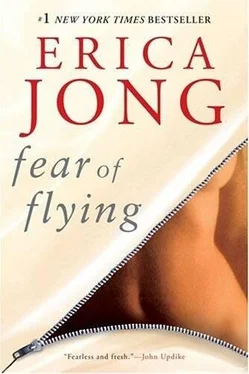
![Brian Jacques - [Flying Dutchman 01] - Castaways of the Flying Dutchman](/books/128851/brian-jacques-flying-dutchman-01-thumb.webp)



